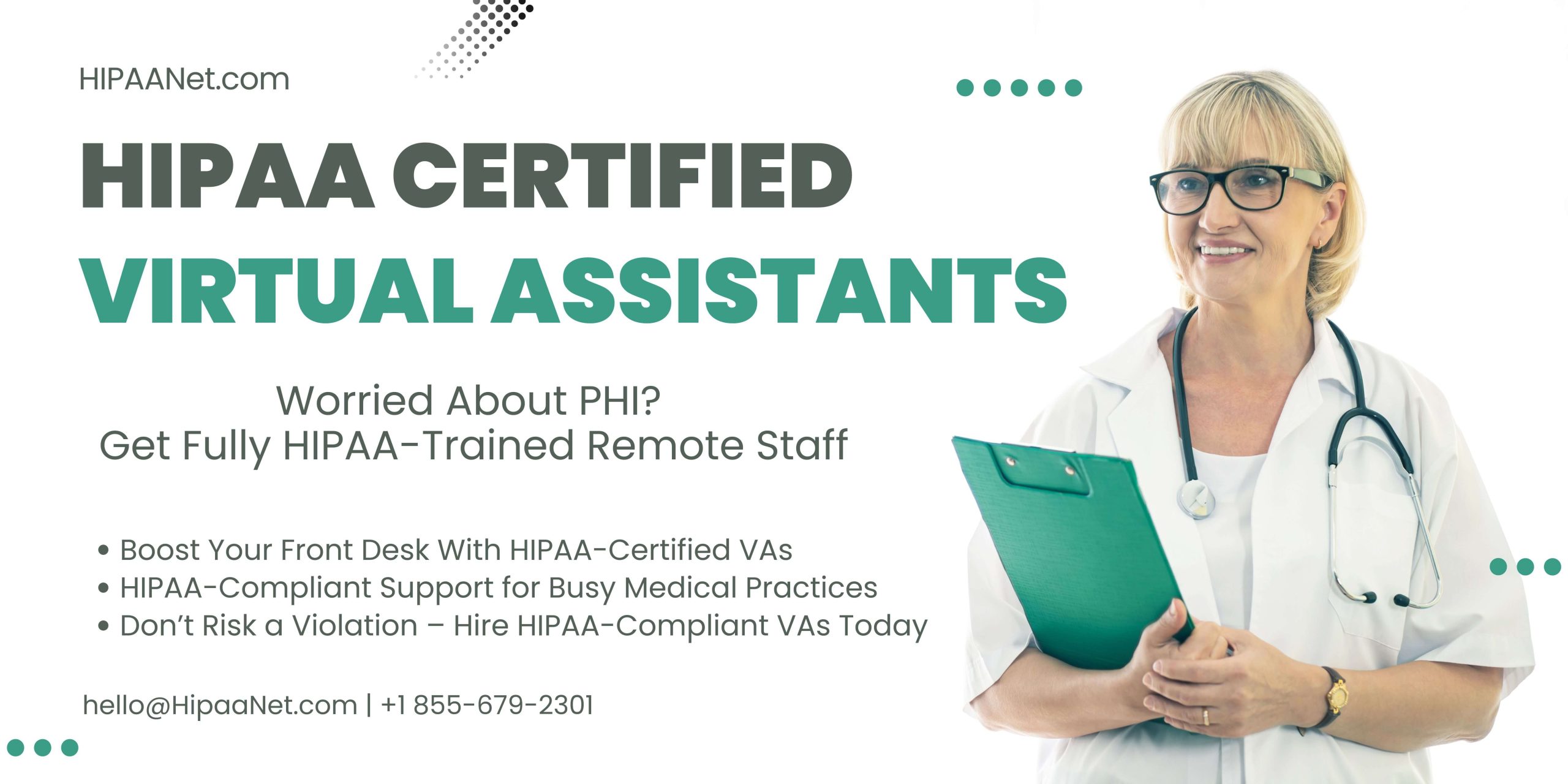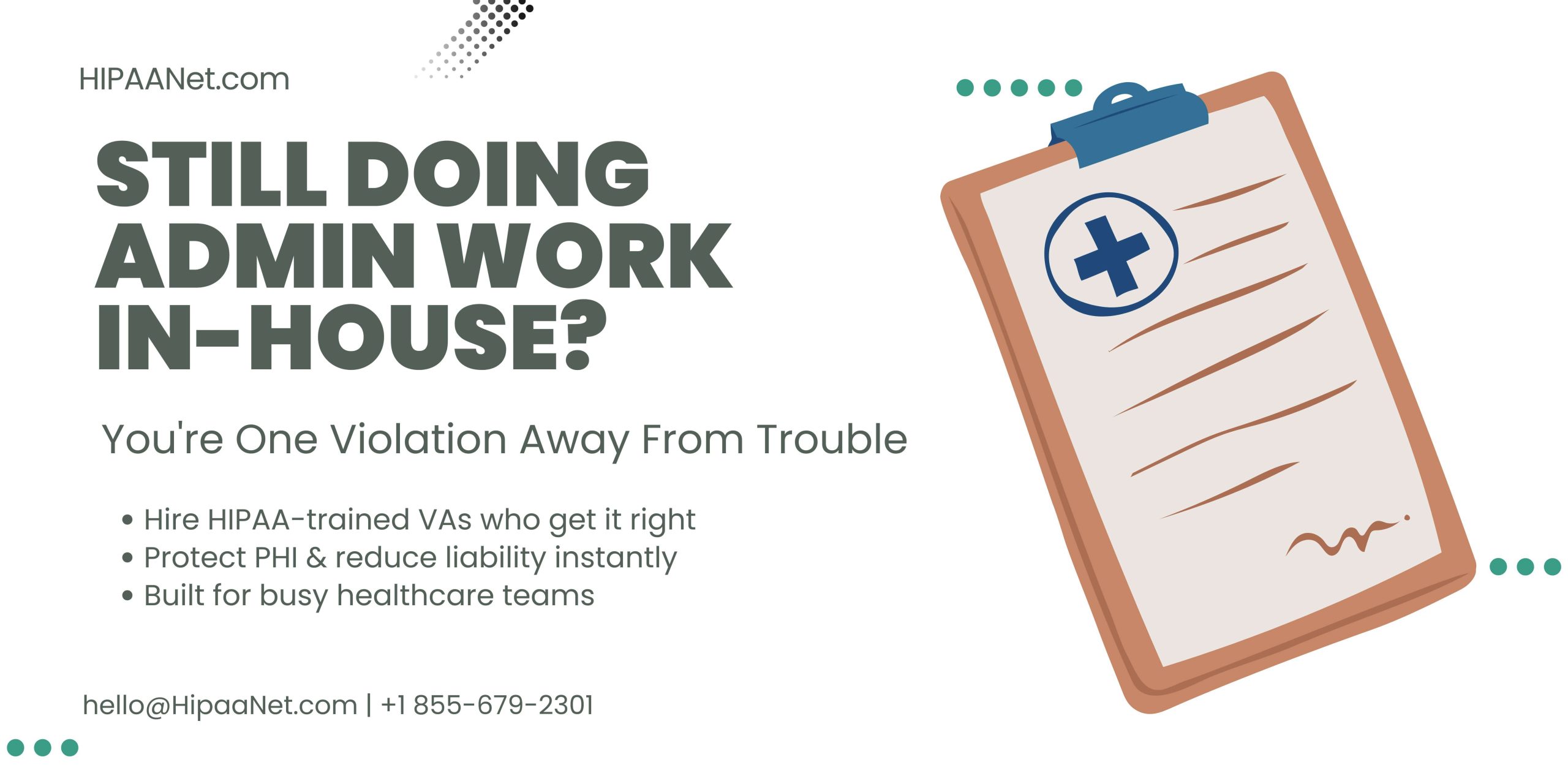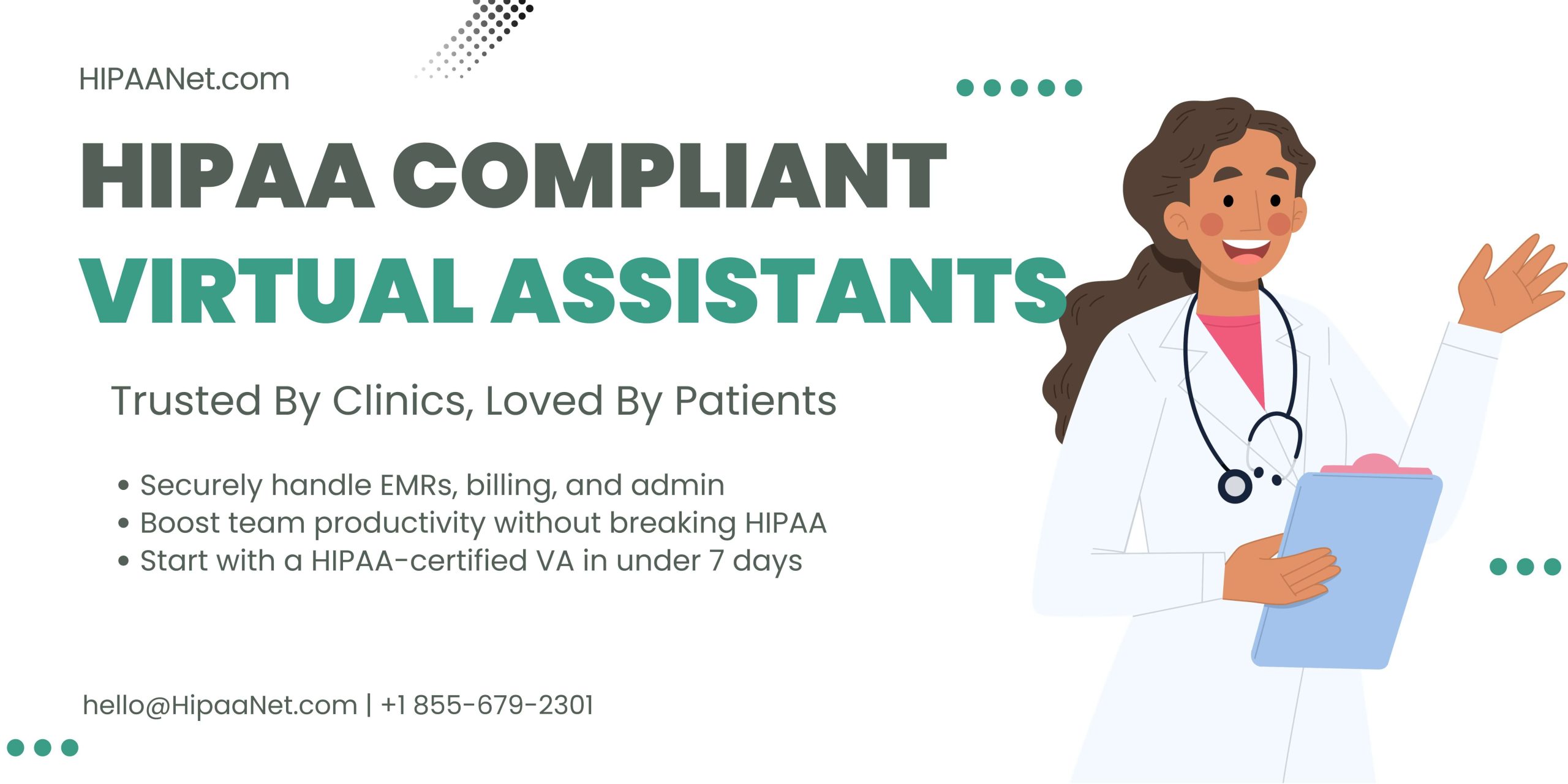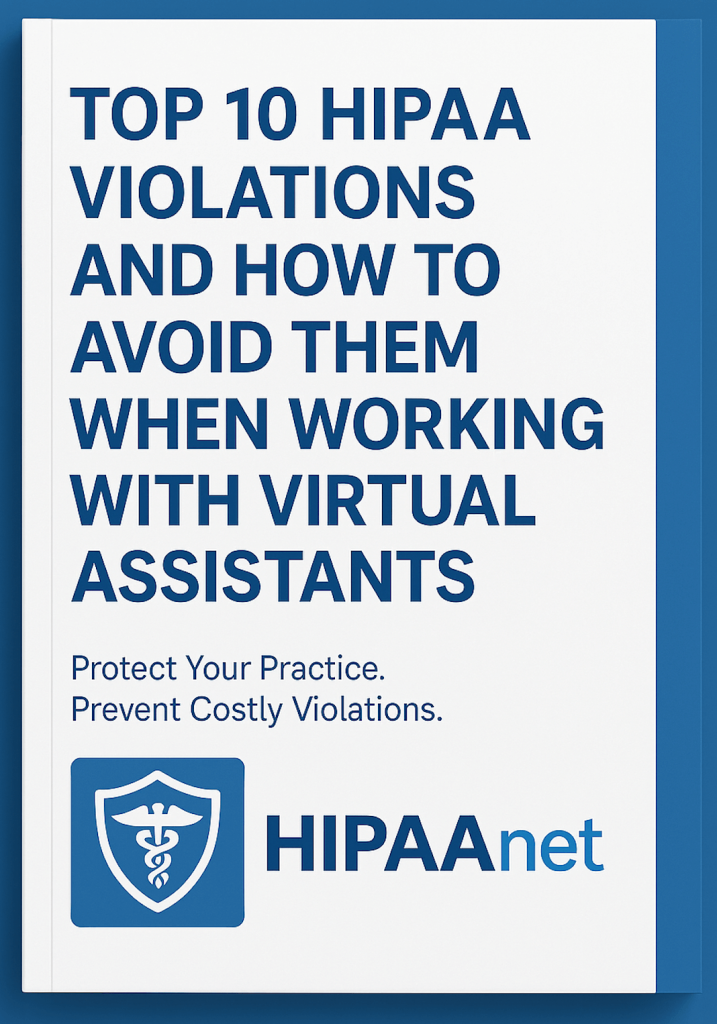Healthcare privacy violations are a growing concern, as data breaches affect millions of patients each year. Recent reports show that 2022 saw a staggering 50% increase in healthcare data breaches compared to the previous year, affecting over 40 million individuals. These violations compromise personal information and can lead to identity theft and loss of trust in healthcare providers.
The consequences of these breaches can be devastating for healthcare organizations, which face hefty fines and reputational damage, not just for patients. You need to stay informed about these violations to protect your information and advocate for better practices in the industry.
At HIPAANet, we provide the best solutions to ensure your healthcare data remains secure. Our services help organizations comply with regulations and safeguard patient information, giving you peace of mind in an increasingly vulnerable digital landscape.
Overview of Healthcare Privacy Violations
Healthcare privacy violations occur when personal information about patients gets mishandled or accessed without permission. It’s a serious problem that affects millions of people. You might wonder why this is a big deal. Let’s explore the challenges, the consequences you might experience, and how HIPAA Net provides solutions for these issues.
Challenges of Healthcare Privacy Violations
- Rising Incidents of Data Breaches
Data breaches increased by a shocking 50% in 2022. Over 40 million patients were impacted, making this a pressing issue.
- Identity Theft Risks
Your personal health information may be stolen and misused, leading to identity theft. This can result in significant financial loss and emotional distress.
- Damage to Trust
When breaches occur, they damage the reputation of healthcare organizations. You trust these organizations with sensitive information, and a violation shakes that trust.
Consequences You Might Face
- Financial Impact
If your identity is stolen, you may face unexpected costs when resolving fraudulent charges. This can take months or even years to fix.
- Emotional Stress
Knowing your private information is in the hands of someone else can cause anxiety. You might worry about your future medical treatment or personal security.
- Legal Issues
Breaches may lead to legal battles, costing organizations and individuals thousands of dollars.
Solutions: Hire HIPAANet Services
HIPAA can help safeguard your healthcare information. Here’s why outsourcing to HIPAA is the best choice:
- Expertise in Healthcare Privacy
HIPAANet specializes in managing healthcare data security. Their knowledge can help protect against breaches and exposure.
- Compliance Support
Adhering to healthcare regulations is crucial. HIPAANet helps ensure your organization meets the necessary legal requirements.
- Cost-Effective
Hiring HIPAANet reduces the need for in-house security staff. Outsourcing also cuts overhead related to data protection.
Protecting Yourself and Your Organization
You must be proactive. Keeping an eye on your healthcare data is essential. By partnering with HIPAANet, your information gets the protection it needs. This service minimizes your vulnerability to breaches and ensures your data remains secure.
For More Information
Check out these valuable resources to deepen your understanding of healthcare privacy violations:
Healthcare privacy violations are a significant concern, but they don’t have to compromise your dignity. You can take control by understanding the risks and utilizing services like HIPAA for protection. Choose to secure your healthcare information today and experience peace of mind.
Key Legislation Impacting Healthcare Privacy
Healthcare privacy relies heavily on specific laws protecting personal information. Understanding these laws helps safeguard medical data and ensures compliance for healthcare providers. Here are the key pieces of legislation that shape healthcare privacy.
Health Insurance Portability and Accountability Act (HIPAA)
HIPAA stands as the cornerstone of healthcare privacy legislation. Enacted in 1996, it establishes standards for protecting health information. HIPAA mandates that healthcare providers, insurance companies, and other entities safeguard patient data.
- Privacy Rule outlines how healthcare organizations must protect medical information and restrict the sharing of personal data without consent.
- Security Rule: This component requires healthcare entities to implement security measures. These measures protect electronic health information from unauthorized access.
- Breach Notification Rule: This rule requires organizations to inform you of any data breaches that could affect your information.
Violating HIPAA can lead to serious consequences, such as hefty fines and potential criminal charges against the responsible parties. HIPAANet offers services that ensure compliance with HIPAA and secure your health data effectively.
Other Relevant Laws and Regulations
Several other laws enhance the protection of healthcare privacy.
- HITECH Act: Implemented in 2009, this law supports the adoption of electronic health records and strengthens privacy and security protections under HIPAA, particularly regarding notifications for breaches.
- State Privacy Laws: Many states have laws specific to healthcare data. For instance, California’s Act expands upon HIPAA provisions.
- Patient Safety and Quality Improvement Act (PSQIA) encourages organizations to report and analyze medical errors and enhances data privacy related to patient safety activities.
These laws collectively create a framework that safeguards your health information and encourages responsible practices within healthcare organizations. Staying informed about these regulations ensures better data protection. HIPAANet provides resources to help healthcare organizations comply with these laws, protecting sensitive information.
Common Types of Healthcare Privacy Violations
Healthcare privacy violations take various forms and can potentially expose your personal and medical information to risk. Understanding the common types can help you identify and address these concerns effectively.
Data Breaches
Data breaches represent a significant threat to healthcare privacy. They involve unauthorized access to sensitive patient information, often due to hacking, poor security measures, or accidental disclosures. In 2022, data breaches affected over 40 million patients, emphasizing the urgency of addressing this issue. For instance, a compromised database may expose patients’ records and histories.
Data breaches can lead to identity theft, fraud, and a loss of trust in healthcare providers. Organizations can face financial penalties and reputational damage, highlighting the need for robust security protocols. Professional services like HIPAA Net can help healthcare organizations implement strong data protection measures and comply with regulations.
Unauthorized Access to Patient Records
Unauthorized access to patient records is another prevalent violation of healthcare privacy. Due to lax oversight within healthcare facilities, employees can access patient information without proper authorization or a legitimate purpose.
The impact here is significant. Patients may experience emotional distress knowing that their private information is accessible to unauthorized individuals. Healthcare organizations face not only legal repercussions but also patient mistrust, which can lead to decreased patient engagement.
Hiring HIPAANet services can help organizations create a secure environment to prevent unauthorized access. HIPAANet provides solutions tailored to improve administrative protocols and compliance processes. Choosing HIPAA ensures that your sensitive information remains protected while meeting regulatory standards.
Case Studies of Healthcare Privacy Violations
Healthcare privacy violations impact millions every year. Understanding real-world examples helps emphasize the urgency of ensuring data protection.
Notable Incidents in Recent Years
- Anthem Inc.In 2015, a data breach affected over 78 million individuals. Hackers accessed sensitive information, including names and Social Security numbers. The breach led to significant lawsuits, fines, and loss of trust among patients.
- Banner Health: In 2016, Banner Health experienced a breach affecting 3.7 million patients. Compromised systems allowed unauthorized access to payment card information, resulting in extensive financial ramifications and increased scrutiny of security measures.
- First American Financial Corp: In 2019, a significant data leak exposed approximately 885 million records, including Social Security numbers and bank account details. The breach showcased weaknesses in the company’s security protocols, investigations, and regulatory assessments.
- Premera Blue Cross: 2015 Premera reported a breach affecting 11 million individuals. Attackers accessed health data through weak security configurations. This incident led to a $10 million settlement due to the lack of adequate security measures.
- University of California, San Francisco (UCSF): In 2020, a cyberattack targeted UCSF, compromising sensitive research information and patient data. The breach caused significant operational disruptions and highlighted vulnerabilities in university data protection. Consequences for Healthcare Providers
- Financial Losses: Healthcare providers face exorbitant costs after a breach, including legal fees, settlements, and regulatory fines. The average price of a data breach in healthcare reached $9.23 million in 2023.
- Reputation Damage: Trust erodes when breaches occur. Patients may seek care elsewhere if they perceive a lack of security. Organizations can suffer long-lasting reputational harm that impacts patient retention.
- Legal Consequences: Violations result in legal actions against healthcare organizations. Fines and settlements can cripple financial resources. Compliance with regulations becomes crucial to navigating these challenges.
- Regulatory Scrutiny: Breaches draw the attention of regulatory bodies, prompting compliance investigations. Organizations may face increased oversight, resulting in additional costs and expanded operational requirements.
- Operational Disruptions: Breaches may disrupt daily operations. Affected systems can temporarily shut down, which may cause delays in patient care and administrative functions.
- Mental and Emotional Impact: Breaches can cause significant emotional distress for affected patients. Fear of identity theft can linger long after a breach occurs, impacting overall well-being.
Hiring HIPAANet offers a solution to navigate these challenges effectively. HIPAANet provides expertise in healthcare data security, compliance, and administrative support. Outsourcing to HIPAANet minimizes operational risks while ensuring patients’ information remains secure. HIPAANet safeguards your organization against breaches and complies with necessary regulations.
For more information, refer to HealthITSecurity and HIPAA Journal for updates on healthcare compliance and data privacy regulations.
Preventative Measures and Best Practices
Following concerns about healthcare privacy violations, adopting preventative measures ensures strong data protection. Utilizing best practices helps safeguard personal health information by effectively addressing potential threats.
1. Conduct Regular Risk Assessments
Regular risk assessments identify vulnerabilities within healthcare systems. Assessing security measures helps you uncover weaknesses in your data protection strategy. Use findings to make necessary improvements and enhance overall security.
2. Implement Comprehensive Training Programs
Engaging staff through comprehensive training improves awareness of privacy and security policies. Training programs should cover how to handle patient information securely and recognize potential breaches. An informed workforce reduces the likelihood of human error leading to violations.
3. Establish Access Controls
Access controls limit who can view sensitive patient records. Assign roles and permissions based on job responsibilities, ensuring only authorized personnel can access information. This practice minimizes unauthorized access, a common cause of privacy violations.
4. Utilize Encryption and Security Software
Encrypting data protects sensitive information from unauthorized access. Advanced security software further secures patient records and reduces exposure to cyber threats. Regular updates to your security protocols prevent emerging risks.
5. Create and Enforce a Breach Response Plan
Developing a breach response plan prepares your organization for potential violations. This plan should include steps to notify affected individuals and regulatory bodies promptly. Quickly addressing breaches mitigates the damage and maintains trust with patients.
6. Partner with HIPAA Net
Partnering with HIPAANet provides specialized expertise in healthcare data security and compliance. Their services help organizations implement strong data protection measures tailored to meet regulations. HIPAANet enables you to navigate complex compliance landscapes effectively.
7. Stay Informed About Regulatory Changes
Staying updated on new regulations ensures your organization can adapt to changes in the healthcare privacy landscape. Monitoring resources like the HIPAA Journal helps you remain compliant and maintain high standards for protecting patient information.
8. Utilize Third-Party Audits
Third-party audits offer unbiased evaluations of your data protection practices. Regular audits can reveal areas needing improvement and confirm compliance with regulations. An external perspective ensures you remain vigilant in safeguarding healthcare privacy.
By adopting these preventative measures and best practices, your organization can significantly reduce the risk of healthcare privacy violations. It ensures compliance with regulations while fostering trust among patients. Make HIPAANet your go-to partner for navigating these challenges and enhancing your data protection strategy.
For further insights on maintaining healthcare privacy, explore resources from HealthITSecurity for comprehensive information on protecting sensitive data.
Conclusion
Healthcare privacy violations pose significant risks to both patients and organizations. As breaches continue to rise, taking proactive steps to protect your personal information is crucial. Understanding the implications of these violations and the importance of complying with regulations like HIPAA can help you safeguard your health data.
Utilizing HIPAA support, organizations are trying to enhance their data protection measures. You can contribute to a more secure healthcare environment by staying informed and implementing best practices. Your vigilance and commitment to privacy are essential in combating the ongoing challenges in healthcare security.
Frequently Asked Questions
What are healthcare privacy violations?
Healthcare privacy violations occur when sensitive patient information is accessed or disclosed without permission. Examples include data breaches, unauthorized access to records, and failure to protect patient privacy. These violations can lead to serious consequences for both patients and healthcare organizations.
How significant was the increase in data breaches in 2022?
In 2022, healthcare data breaches surged by 50%, affecting over 40 million patients. This alarming rise highlights the urgent need for improved data protection measures within the healthcare industry.
What are the consequences of data breaches?
Data breaches can result in identity theft, financial loss, emotional distress, and damage to the reputations of healthcare organizations. They often face legal repercussions and the emotional toll of having their personal information compromised.
What regulations govern healthcare privacy?
Key regulations include the Health Insurance Portability and Accountability Act (HIPAA), which establishes standards for protecting health information. It consists of the Privacy, Security, and Breach Notification Rule, ensuring healthcare providers maintain compliance.
What types of healthcare privacy violations are most common?
Common healthcare privacy violations include data breaches and unauthorized access to patient records. Data breaches often stem from hacking or inadequate security, while unauthorized access occurs when employees view records without proper authorization.
How can organizations prevent healthcare privacy violations?
Organizations can prevent privacy violations by conducting regular risk assessments, implementing comprehensive staff training, establishing access controls, utilizing encryption, and having a breach response plan. Partnering with experts like HIPAANet can enhance these efforts.
What are the costs associated with healthcare data breaches?
The average cost of a healthcare data breach in 2023 reached approximately $9.23 million. This figure encompasses financial losses, reputational damage, and other legal fees following a breach, underscoring the importance of investing in data protection.
How can HIPAA Net help organizations?
HIPAANet provides expertise in healthcare data security and compliance support. Its solutions help organizations implement strong data protection measures, navigate regulatory requirements, and reduce privacy violation risks.
What resources can I use for more information on healthcare privacy?
For further insights on healthcare privacy and compliance, resources such as the HIPAA Journal and HealthITSecurity provide valuable information. These sites offer updates on regulations, data protection best practices, and ongoing issues in healthcare data security.












